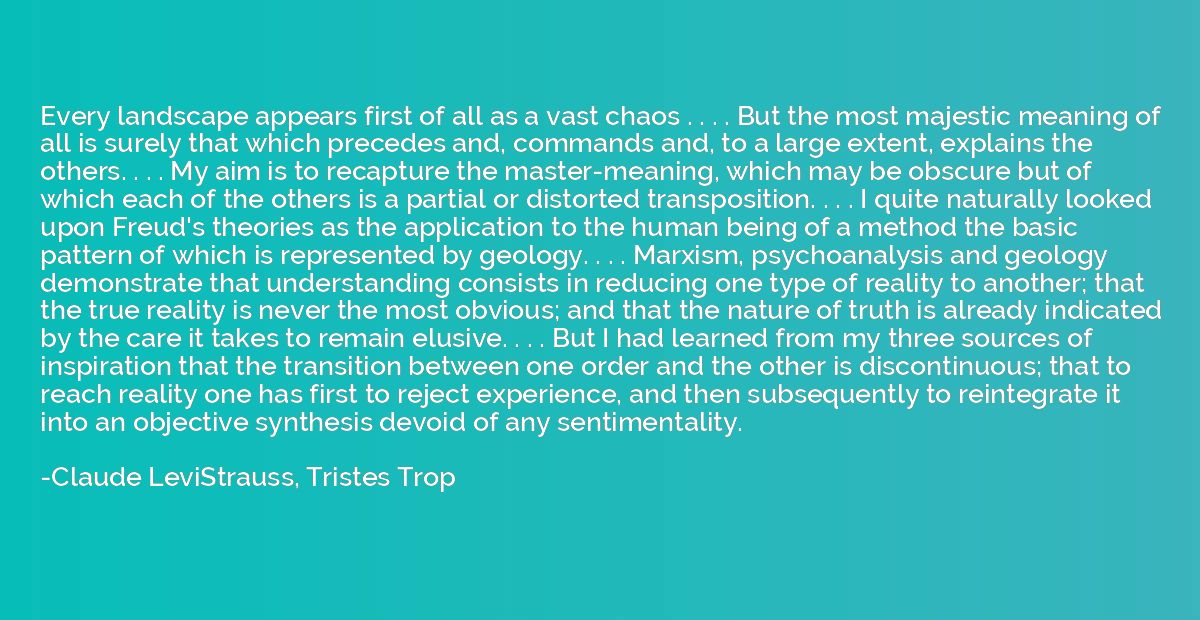Quote by Claude LeviStrauss, Tristes Trop
Every landscape appears first of all as a vast chaos . . . . But the most majestic meaning of all is surely that which precedes and, commands and, to a large extent, explains the others. . . . My aim is to recapture the master-meaning, which may be obscure but of which each of the others is a partial or distorted transposition. . . . I quite naturally looked upon Freud's theories as the application to the human being of a method the basic pattern of which is represented by geology. . . . Marxism, psychoanalysis and geology demonstrate that understanding consists in reducing one type of reality to another; that the true reality is never the most obvious; and that the nature of truth is already indicated by the care it takes to remain elusive. . . . But I had learned from my three sources of inspiration that the transition between one order and the other is discontinuous; that to reach reality one has first to reject experience, and then subsequently to reintegrate it into an objective synthesis devoid of any sentimentality.

Summary
This quote suggests that landscapes initially seem chaotic, but they hold a deeper meaning. The author aims to uncover this "master-meaning," which is obscured and partially represented in other forms. The author sees a parallel between Freud's theories, Marxism, and geology, where understanding is achieved by reducing one reality to another, often not the obvious one. The nature of truth, the quote suggests, is elusive and requires careful examination. The author emphasizes the need to reject personal experience and integrate it objectively to attain a true understanding.














